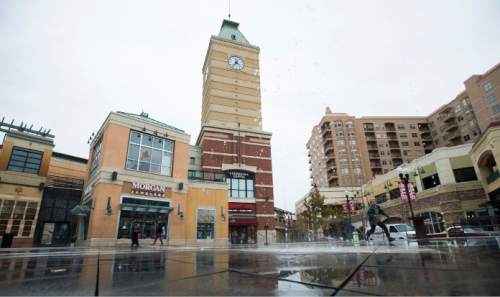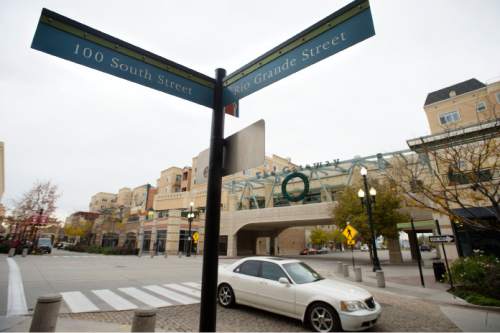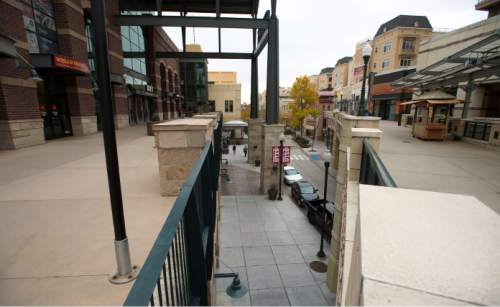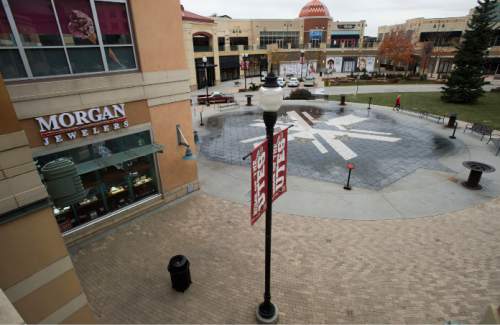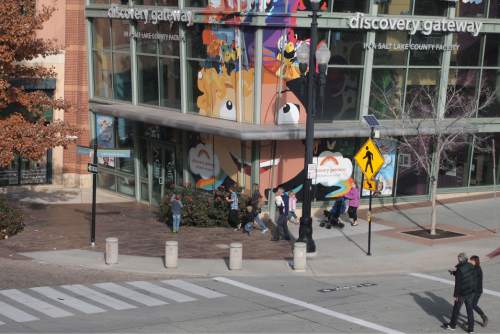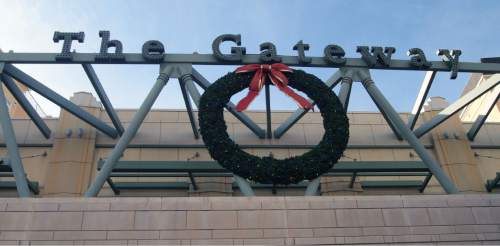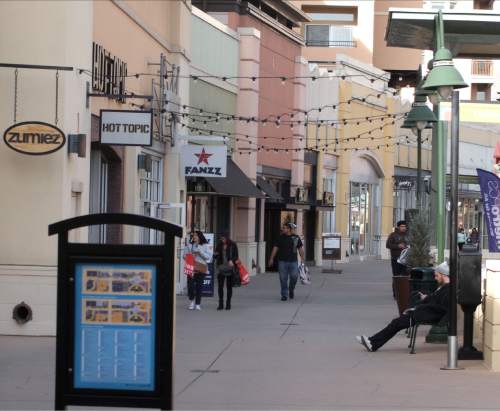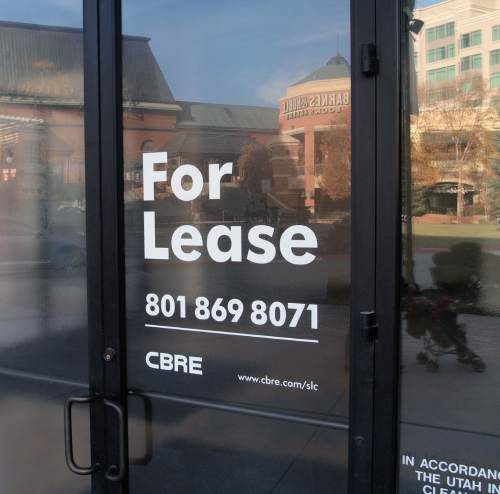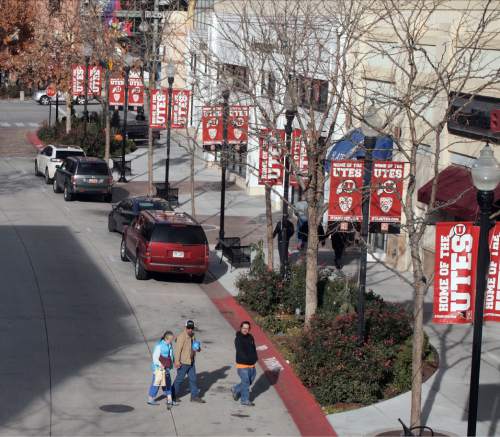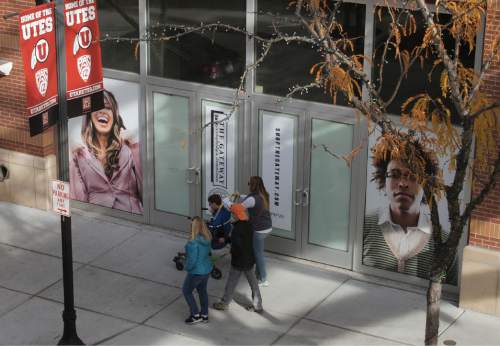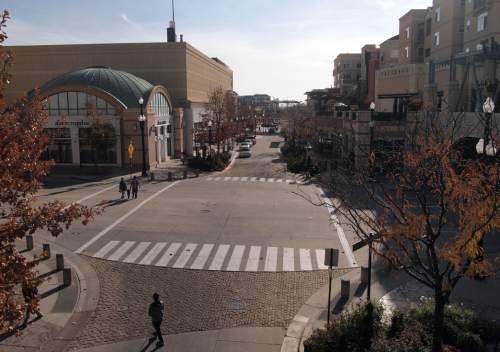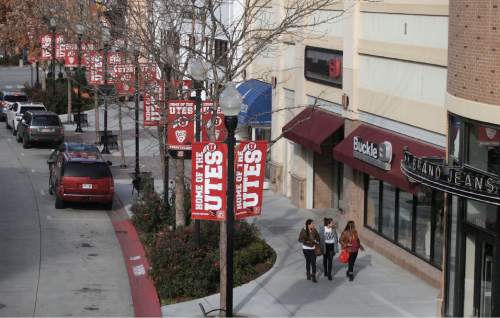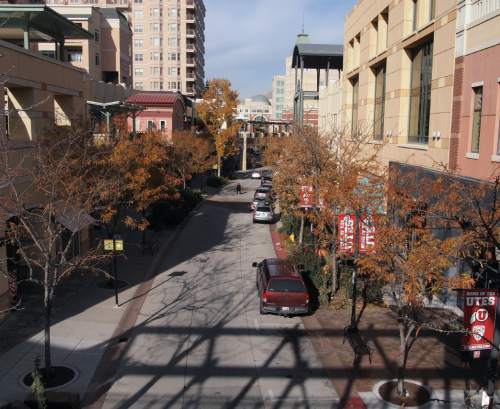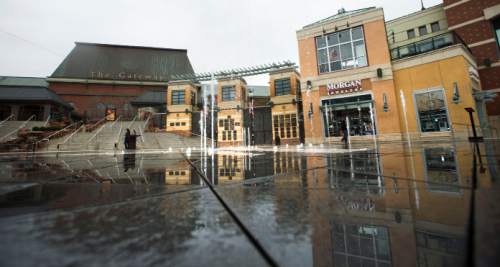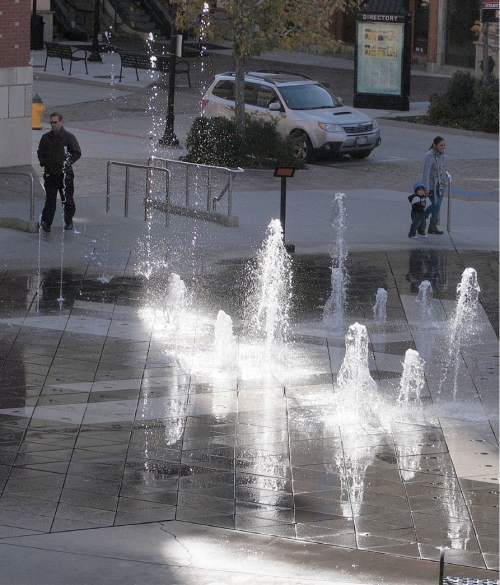This is an archived article that was published on sltrib.com in 2015, and information in the article may be outdated. It is provided only for personal research purposes and may not be reprinted.
Owners of The Gateway mall in Salt Lake City are pursuing an exit strategy.
Headquartered in suburban Chicago, Retail Properties of America Inc. (RPAI) has told Wall Street analysts for months it is looking for a "final resolution" on the ailing shopping center.
The publicly traded RPAI also has highlighted several steps toward unwinding the equivalent of an upside-down mortgage it holds on the Utah retail complex, due to a $100 million loan it took out using The Gateway as collateral.
Several sources privy to the deal — but unauthorized to speak on the record — say The Gateway is being sold to a Phoenix-based company called Vestar, which buys and develops open-air retail properties and owns about 45 shopping centers across Arizona, California, Texas and several adjacent states.
Officials at RPAI corporate offices declined to comment, and Vestar executives did not respond to inquiries from The Salt Lake Tribune. RPAI's Gateway managers in Utah also did not respond to inquiries.
Salt Lake City Community and Economic Development Director Jill Love reportedly has referred to an impending sale in private conversation, but publicly would confirm only that "a number of retailers have come through, interested in buying The Gateway."
"Several," Love told The Tribune, "have seemed very serious about it."
Though refusing to talk about Vestar, Love said all prospective buyers have asked about plans for alleviating conditions for the homeless, who are drawn in large numbers to several shelters and service providers located near The Gateway.
"Addressing the needs of the homeless," Love said, "has been at the top of their list."
If officials are indeed keeping news of an imminent Gateway sale under wraps, several factors could explain why.
For one, mall owners might be wary of releasing news of change just as the peak holiday shopping season unfolds.
What's more, any deal to sell The Gateway — where The Tribune newsroom is located — would be financially complex and time consuming to complete, potentially involving multiple investors, securing financing from lenders and challenges in untangling RPAI's leveraged stake in the mall.
Though it retains key anchors such as Dick's Sporting Goods, Barnes & Noble, Discovery Gateway and a Megaplex movie theater, the 623,973-square-foot Gateway on the western edge of downtown has struggled in recent years with declining occupancy and foot traffic.
Opened in 2001 by Utah developer The Boyer Co. with taxpayer backing, the lifestyle center faces stiff competition for retail tenants and customers since the launch of nearby City Creek Center, the LDS Church-built luxury mall on Main Street, which debuted in 2012.
Boyer sold Gateway's retail portion to RPAI, formerly known as Inland Western Retail Real Estate Trust, in 2005. Two years ago, a partnership between real estate investment firms Hines and Oaktree Capital Management bought four of The Gateway's six office buildings from Boyer.
As recently as on Halloween, when RPAI announced The Gateway opening of a Wiseguys Comedy Club, the company touted its vision for turning the mall into "a fully realized retail and entertainment destination" and said it had an "aggressive leasing plan in place" to expand the center's leisure and dining options.
Behind the scenes, though, RPAI has been working for months to address Gateway's flagging performance with shareholders and issues with its loan. Top U.S. credit-rating agency Moody's Investors Service said three weeks ago The Gateway loan had been transferred for special servicing "due to imminent default."
Secured when Gateway's tenant spaces were more than 96 percent full and cash flow from store leases was loftier, the loan now is referred to as "impaired" by RPAI executives in light of mall occupancy rates around 76 percent as of August after losing major tenants such as the Apple Store to City Creek.
In 2014, RPAI cut The Gateway's reported value on its financial statements to $75 million, down from a high of $163 million in 2010.
"I wouldn't say it was performing well," Steve Grimes, RPAI's president and CEO said of The Gateway loan in a Nov. 4 conference call with Wall Street analysts. "[I]t's become very obvious that the value of the debt is higher than the value of the asset."
RPAI's Chief Financial Officer and Treasurer Heath Fear said in the same call that getting The Gateway loan transfered in early August for special handling by creditors was "a significant step towards advancing the exit strategy of the asset."
In a further complication, RPAI's loan was bundled in 2010 into a package of commercial mortgage-backed securities at JPMorgan Chase and subsequently sold to investors.
The Gateway loan makes up about 30 percent of the securitized loan pool in question, which is called JPMCC 2010-C1, and just how the securities might be unwound in conjunction with a Gateway sale remains unclear.
RPAI also is in the midst of a national realignment of its holdings, which extended to 212 retail properties across the country as of March. The company told investors in July it intended to buy up to $1 billion in new retail properties, while also shedding nearly $778.7 million in nonstrategic assets.
RPAI recently sold its only other Utah property, Red Cliffs Mall in St. George, to rival shopping center chain General Growth Properties, owner of Fashion Place mall in Murray.
Vestar, meanwhile, is a privately held company that has nearly 24 million square feet of retail space under its ownership and management, with a majority of it located in Arizona and California. Founded in 1989, the firm reportedly has been on a $1 billion buying spree of shopping centers in Western states in the past three years.
In addition to Vestar's actual property holdings, a map on its website indicates the company has designs on expanding into Utah, Washington and Oregon.
The company boasts a reputation in many of its host markets for managing properties that combine retail and entertainment and successfully appealing to young adults known as millennials.
Twitter: @TonySemerad


